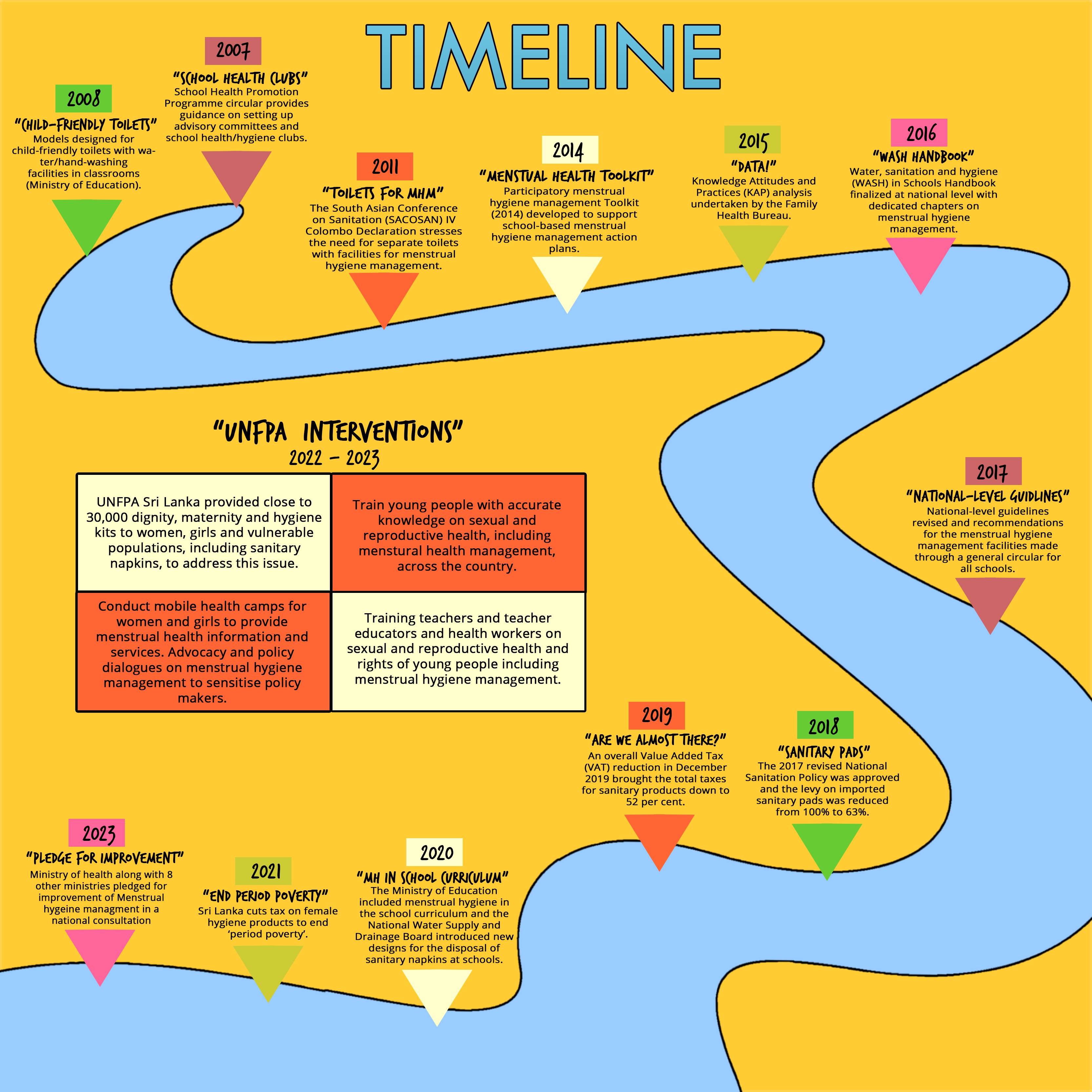UNFPA’s mandate in delivering for women and girls indicates that menstrual health is essential to bodily autonomy.
Menstrual Hygiene Day is a global advocacy platform to promote menstrual health and hygiene for all women and girls.
It was launched with a wide range of partners to raise awareness about the vital need for adequate and sufficient menstrual hygiene knowledge for adolescent girls in schools and beyond with the primary goal being to break taboos and the stigma surrounding menstruation.
The stigma attached to menstrual health in many countries creates barriers for women and girls. Millions of women and girls across the globe, and in Sri Lanka, face abuse, stigma, miss opportunities available to them, lose their dignity due to menstruation.
In many cultures, the onset of menstruation means that the girl is now ready for marriage and childbearing, even if she is a child herself; they could be isolated to remote locations for the length of menstruation which could be unsafe and unsanitary; missing school due to the pain or the lack of access to products for personal hygiene are few of the reasons menstrual hygiene day continues to be important. These are also practiced in Sri Lanka to a certain extent and there are other myths and misconceptions around menstruation that communities still follow, especially due to lack of awareness and education.
52% of Sri Lanka’s population are women and of that 4.2 million women are of menstruating age. However, access to safe, affordable menstrual hygiene products remains a luxury for many women.
66% are not aware of menstruation until menarche (Government of Sri Lanka (GoSL), UNICEF). 60% of parents do not allow their daughters to go to school during their period.
Gender inequality, extreme poverty, humanitarian crises and harmful traditions can amplify deprivation and stigma related to menstruation.
De-stigmatizing menstruation and empowering communities to speak up and support women and girls as they face concerns about their menstrual health is key.
It is important to empower people and societies understand that menstruation is a natural, biological process and women and girls should not fear being cast out, missing opportunities, feeling fear or shame. Our approach to addressing the stigma and myths and misconceptions surrounding menstrual health should be holistic as we address gaps in infrastructure and products available to women and girls.
Equipping everyone from a young age with information and raising awareness about the human body is key to ensuring menstruation is a healthy, normalized and shame-free experience. Investment in menstrual health should reflect its important role in human rights, public health, gender equality and sustainable development.
The timeline takes a look at some of the key events relating to menstrual health and hygiene in Sri Lanka over the past few years.


